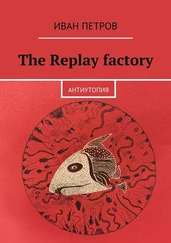At the following midday meal Mary had come to the table to find a pair of white lace gloves placed between her knife and fork. For a moment she felt that her anger would cause her to explode. Her talons, grown in the prison, had been neatly cut to the perimeters of her fingers when she had come for her interview. But now she wished them long again so that she might rake the fleshy face of the preacher until the blood gushed from his rubicund cheeks to soak the napkin tied about his neck. As her anger abated she was overcome with humiliation. She fought to control her sobs, her face cast downwards and her poor, broken hands concealed upon her lap. A silent tear ran down her cheek and fell onto the gloves, placed so that the longest fingers appeared to be pointing accusingly at her.
'My dear Miss Abacus,' she heard Elspeth Smedley say in an unusually loud voice, 'I must apologise for my bad manners. I had quite forgotten to place gloves at the table for yesterday's luncheon. Can you possibly forgive me? It is all the fashion these days, but as Smedley and I eat mostly alone, I have grown careless of convention.'
Mary looked up slowly to be met by a smile from Elspeth who, she now saw, wore a pair of gloves identical to her own.
'I have made a brisket of beef with a tarragon sauce in the hope that you will forgive my appalling oversight.' Then Elspeth Smedley added lightly, 'The soup is made of the beautiful watercress you brought this morning from the rivulet. It is my favourite and I must thank you. Smedley does so much enjoy it too.'
It was the longest speech Mary had ever heard from the shy and naturally retiring Elspeth, and she felt sure that no person had ever addressed her with such kindness and compassion.
'Thank you, ma'am,' Mary murmured as she reached for the gloves in front of her.
'No, no, my dear, you must call me Elspeth, for you are as welcome at our table as any of our other friends.'
Though never in the least pleasant to her, the Reverend Thomas Smedley grew accustomed to Mary's presence at lunch. He placed little store in her opinions but, unlike his sister, Mary was not willing to listen in silence to his tirades or accept his pronouncements as though they were infallible. After a few weeks she was beginning to get results from several of the children in her class, and she was convinced that she could fill their small minds with a love of learning.
Smedley, though pretending to evince no interest in Mary's progress, would command her to debate him, often interrupting her, and when she made a point worthy of consideration he dismissed it with a flick of his wrist and the expostulation 'Bah!' On one occasion he had followed this with the words, 'They are nothing but savages to be likened to the black creatures that crawl like vermin among the hills.'
'We are but the creatures we are permitted to be, sir,' Mary protested. 'This is as true for the orphans as it is for the savage. Our nature is not formed within the womb but by what 'appens to us beyond it!'
'Ah! But you are quite wrong!' Smedley replied. 'The pig is happiest in its own mud! When rescued from his natural ways and habitat, the noble savage, no longer covered in the stench of fish oil but bathed and dressed in linen, is soon forlorn and woebegone. If you would have your Van Diemen's savage dine at the table of the governor, the food would prove unsuitable to his digestion, the linen chafing and uncomfortable to his skin, his posterior quickly wearied by the gilt chair and the custom of knife and fork and spoon likely to confound his primitive mind. How then by means of books and slate can you change this repulsive creature for the better? How indeed, hmm, Miss Abacus?'
'Sir, I know nothing of savages, it be the young minds of little 'uns of our own kind I seek to change. They are not by nature consigned to the pig sty, but are born the same and washed as clean o' the blood o' their birth as any noble child. If perchance they was placed in the nursery of a grand manor, there's none would know the difference and they would carry their proxy nobility as well as any Lord or Lady.'
'Oh, but you are quite wrong again, Miss Abacus! You have observed them in your own class, the close-set eyes, the sloping, beetle brows, the vacuous and slack-jawed visage with no dawn of comprehension seen to rise up into their dulled, indifferent eyes. These are not the substitute sons and daughters of the decent classes, they are already well branded to the bottom class, marked every bit as surely as the black skin of the aboriginal savage marks him to his sub-human species!'
It was true enough that several of the children in Mary's class had the precise appearance described by the Reverend Smedley and true, also, that not a flicker of comprehension seemed to show in their eyes when they were presented with an idea which required the smallest conjecture. But they sang and clapped with gusto and were much entertained with simple games and Mary, in many ways, loved them most of all.
'That ain't fair, sir!' she exclaimed hotly. 'I've worked in big houses in my time, and heard tell of others where wrong 'un's, idjits, are born to the gentry. King George himself, Farmer George, he had more than one loose screw rattlin' about in his royal noggin! You're quite right, there be some in me class won't take much to learnin' but most o' them make progress and will in time come to somethin'!'
'Ha! If we cannot save their souls in time, Miss Abacus, all they will come to is corruption and licence, drunkenness and thieving!' Thomas Smedley jabbed a fat finger at Mary. 'You will know that your school is not of my making. Should I have my way I would wish it gone in an instant! My work, Miss Abacus, is God's work, and when you interfere with God's natural laws and would think to change the clay from which each of us is formed, I can clearly enough see the devil's hand in it!'
'Sir, the devil has no monopoly on brains!' Mary replied, looking into her napkin and holding down her anger.
'Oh?' Thomas Smedley snorted, pointing at her again. 'Then is it the Lord God who sends a brothel keeper and a whore to my orphanage to teach His precious children?'
• • •
The three mornings Mary spent at the orphan school soon became four and then five. Mr Emmett would sometimes call around and watch as the children sang or recited a poem for his benefit. He had seen to it that blackboard, slates, chalk, paper, quills and blacking and even a few children's books were made available. There were never sufficient books, for Mary believed that reading was the basis for any education and would lead naturally to the desire to write, and created in a child the thirst for knowledge of every description.
She had even persuaded Mr Emmett to get the authorities to return her battered leather-bound copy of Gulliver's Travels. She used this to create in the breasts of her older children a sense of social justice, so that they might understand that it is the strong who manipulate the weak, and that bondage and poverty are not a natural state ordained by God, but imposed by those who enjoy wealth, privilege and power upon those who have no means to resist or overcome poverty and servitude.
In this way unknowingly perhaps, Mary began to teach the tenets of freedom upon which a community of convict slaves became the most egalitarian nation on earth. Mary and her class of fifty orphan children, together with one hundred and sixty thousand convicted thieves, whores, forgers, conmen, blasphemers, political dissenters, the diseased, illiterate, mentally handicapped flotsam and jetsam upon the sea of English and Irish life, formed the basis of this new nation. Undoubtedly this was the most unpropitious human raw material ever gathered in one place, yet it would be forged into a free and equal people who would never again tolerate a despotic regime or accept that any man's station is above that of any other.
Читать дальше












